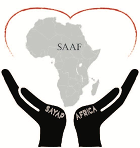Sayap Africa program to protect the environment in Africa
Sub-Saharan Africa suffers from some serious environmental problems, including deforestation, soil erosion, desertification, wetland degradation, and insect infestation. Efforts to deal with these problems, however, have been handicapped by a real failure to understand their nature and possible remedies. Conventional wisdom views the people of this region as highly irresponsible toward the environment and looks to the international community to save them from themselves. It tends to blame all of the region’s environmental problems on rapid population growth and poverty. Yet, there is no conclusive evidence that Africans have been particularly oblivious to the quality of the environment, nor has the international community shown any genuine concern for it until recently. Clearly, protecting the environment of Sub-Saharan Africa is an issue that needs to be examined more carefully and incorporated into an overall strategy of sustainable economic development.
The Roles of the Stare and International Assistance
It is clear that the environmental challenges in sub-Saharan Africa are more complex than the simple model linking environmental degradation to population growth and inappropriate macroeconomic policies indicates. Because of this complexity, no easy solutions are available. But whatever policies are adopted, to succeed they must increase peoples’ interest in protecting the environment by involving them directly in the process; reduce the incidence of poverty to reduce the pressure on natural resources; and show people how a high level of resource use can go hand-in-hand with the maintenance of environmental quality.
The state can play an important role in promoting sustainable development and improving the environment. By setting the correct investment priorities, it can provide needed infrastructure, services, education. In urban areas, it should focus on providing safe water, collecting and disposing solid waste, and improving the physical layout of congested areas; in the rural areas, it should focus on health, education, and basic sanitation.
Regulatory measures, however, may be more important than public investment. In this regard, the state should set environmental standards that are realistic in terms of the country’s particular socioeconomic circumstances. For example, setting strict standards for indoor air pollution when most people cannot afford less-polluting energy sources simply makes enforcement impossible. Regulatory measures should also aim to remove those distortions in the economy that tend to penalize producers or promote overconsumption. Important examples include underpricing agricultural commodities and subsidizing public goods and services, both of which favor the urban population.
Sayap Africa will work with communities and local authorities to set realistic measures and achievable goals.
We need you and your help
It’s impossible to help people without people helping others. We always need volunteers who love to help.
